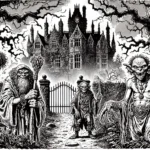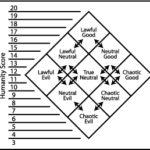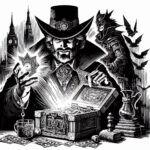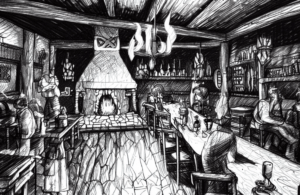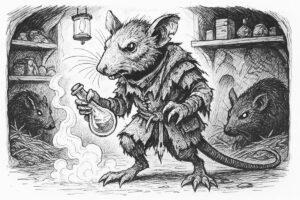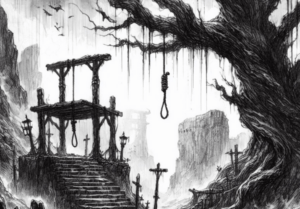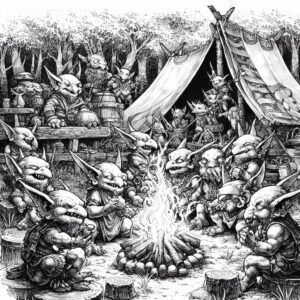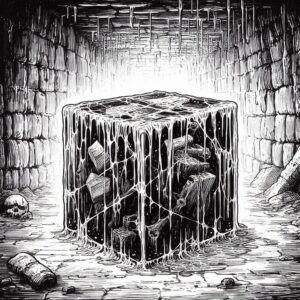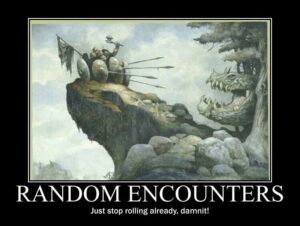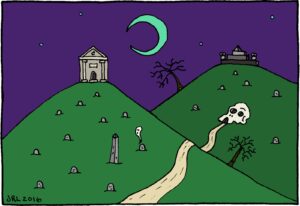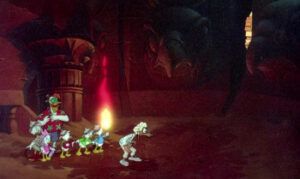The world reacts to those who leave their mark upon it. In this system, your character’s reputation precedes them, shaping how they interact with the world and influencing the opportunities and challenges they encounter.
Reputation Scale and Starting Reputation
Reputation is measured on a scale of -5 (notorious villain) to +5 (legendary hero). Each class has a starting reputation score based on common societal perceptions:
- Paladins +3: paragons of virtue and justice.
- Clerics +2: champions of their deities and healers of the afflicted.
- Barbarian, Cavalier & Rangers +1: skilled warriors who defend the innocent.
- Thief & Grifter -1: their reputation depends on their actions.
- Wizards & Druids -2: often seen as mysterious or eccentric.
- Assassins -3: viewed with suspicion and fear.
Building Your Reputation
Every choice you make shapes your reputation. Here’s how your actions can influence it:
Gaining Reputation
- Heroic Deeds (+1 per significant act): Completing quests, saving innocents, and defeating villains earn you respect.
- Role playing: Consistently acting in a heroic and selfless manner can earn reputation bonuses from the Dungeon Master.
Losing Reputation
- Evil Acts (-1 per significant act): Killing innocents, stealing from the poor, and aiding evil forces tarnish your reputation.
- Role playing: Consistently acting selfishly or cruelly can lead to reputation loss from the Dungeon Master.
Game Effects of Reputation
Your reputation unlocks doors (or slams them shut) in the following ways:
Quest Availability
Certain quests are only available to parties with a specific reputation level. High reputations gain favor with noble houses and good-aligned factions, while low reputations might attract quests from criminal organizations.
Cost Modifiers
Shops adjust prices based on your reputation. A good reputation earns discounts (up to 15% – multiply your reputation by 5%), while a bad reputation increases costs (up to 20% – multiply your reputation by 5%).
Event Consequences
Your reputation can influence the outcome of events. A high reputation might allow for peaceful solutions or better initial reactions from NPCs, while a low reputation might lead to conflict or suspicion.
Tracking Your Reputation
The Dungeon Master will track your individual and party reputation scores. Consider using a simple point system or a visual tracker (like a reputation meter) to keep track of your standing.
Henchmen and Followers
The whispers of your deeds attract those seeking employment or a cause to believe in. Here’s how reputation influences who joins your party:
- High Reputation: A good reputation attracts good-aligned followers who share your heroic ideals. They might offer their services at a discount or even for free, driven by a desire to be part of something bigger. Conversely, a notorious villain might struggle to find trustworthy companions, attracting only those motivated by greed.
- Low Reputation: Criminal organizations or villains might be more willing to work with a character with a bad reputation, offering lucrative contracts or dangerous tasks. However, loyalty might be suspect.
Examples of Reputation in Action
A party with a high reputation approaches a guarded gate in a war-torn city. The guards, wary of strangers, are initially suspicious. However, the party’s good reputation allows them to convince the guards they are allies.
A rogue with a low reputation enters a bustling marketplace. Shopkeepers recognize him and remember his past shoplifting exploits, making him less welcome than someone with a good reputation.
Discover more from Cresthaven RPG
Subscribe to get the latest posts sent to your email.



